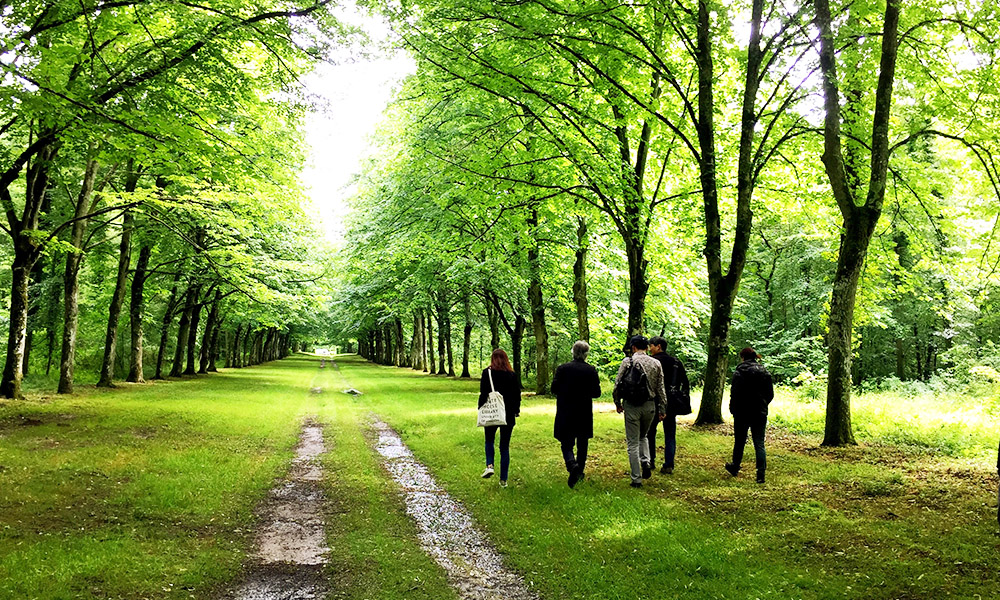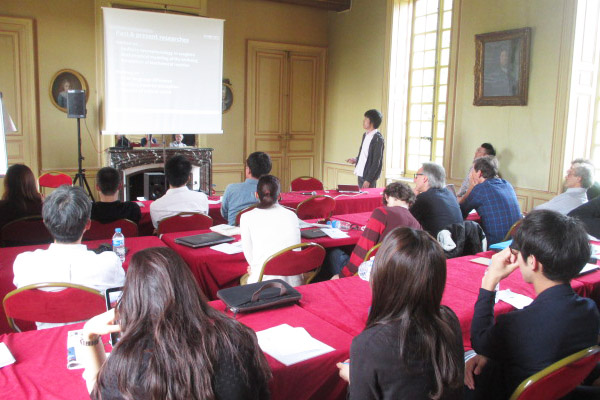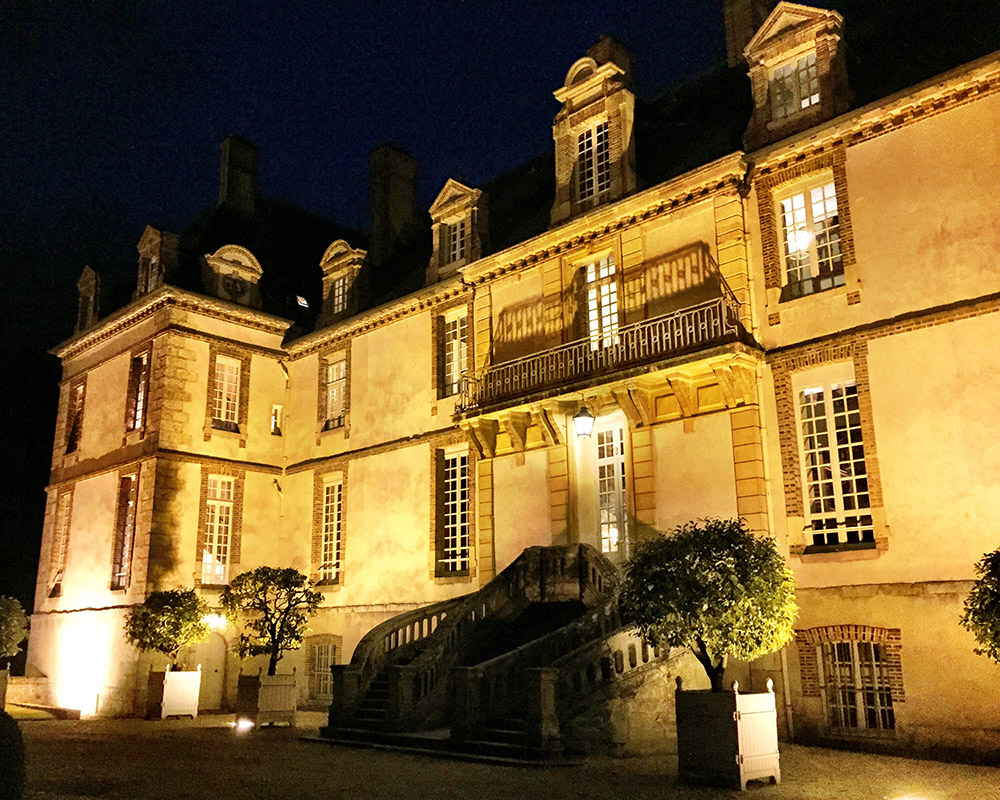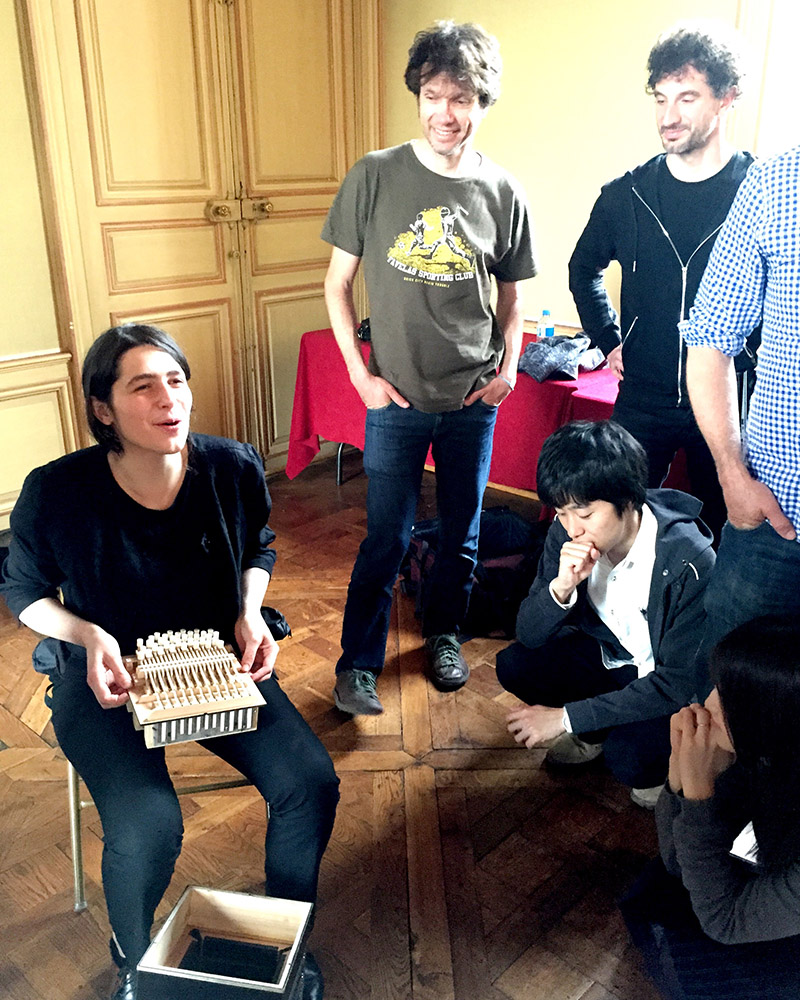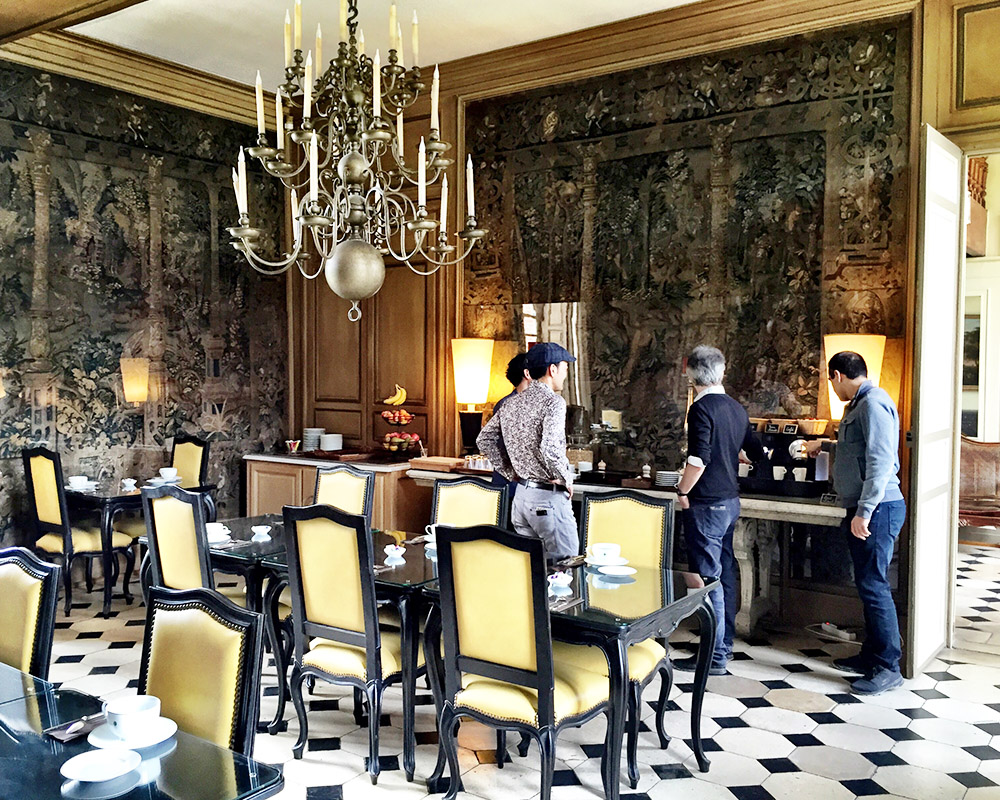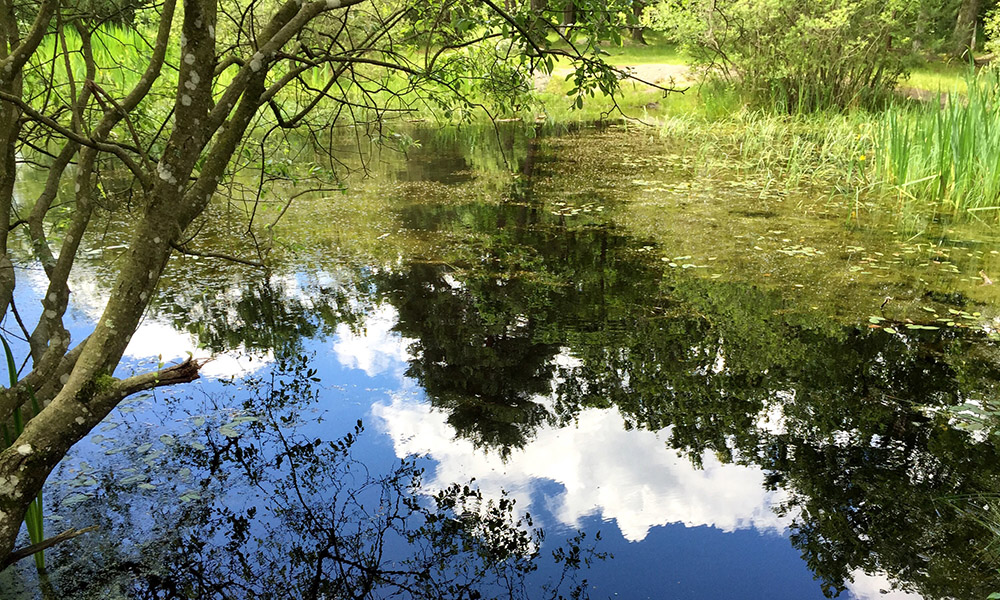Special Issue: Sensing and Feeling
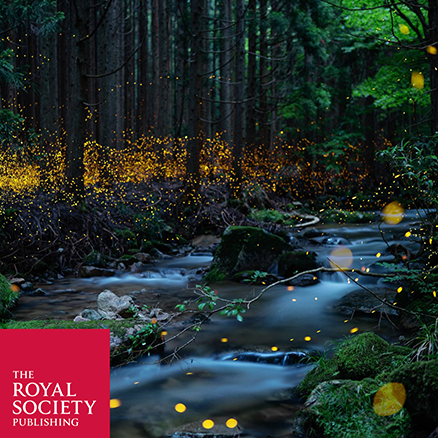
Emotional experiences are partly driven by the way we combine information from the different senses. In other words, our perceptual and emotional systems interact to give rise to subjective feelings. The Theme Issue 'Sensing and feeling: an integrative approach to sensory processing and emotional experience' of Philosophical Transactions of the Royal Society B describes the influence of visual, auditory, tactile, gustatory, and interoceptive (bodily) sensations on the experience of emotions, both pleasant and unpleasant. The work showcased in this issue have implications for the emotional well-being of society at large and of special clinical populations, for example people with mood disorders, aversions to specific foods or sounds and hearing loss. This issue was edited by Hirohito Kondo, Brian Moore and Giulia Poerio, and published in July 2024.
Front image: Firefly-watching is an early summer tradition in Japan. In the darkness, spectators have a calming and enchanting experience witnessing the luminous insects dancing near a clear stream. Credit: iStock.
| Topic | Theoretical Perspective | Recent Advance |
|---|---|---|
| Consciousness |
|
|
| Aesthetics |
|
|
| Well-being |
|
|
| Body and Mind |
|
|
| Emotion across Sensations |
|
|
| Special Populations |
|
Collection: Visual Attention
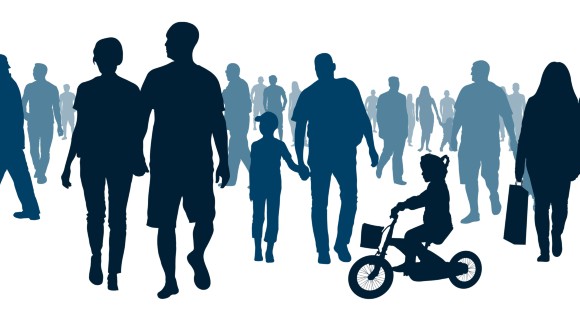
This Collection of Scientific Reports focuses on cognitive and neural processes underlying visual attention and its associated disorders. Our visual environment typically contains more information that can be effectively processed by our visual system at any one time. Visual attention refers to the cognitive processes that allow us to select the information that is most relevant to ongoing behaviour and filter out distracting information. Visual attention, or lack thereof, has a major impact on all everyday tasks where actions critically depend on perceived visual information from the environment (e.g., crossing the road, driving, and reading). The Collection welcomes original research articles from the areas of Psychology and Neuroscience. Guest Editors are Geoffrey Ghose, Hirohito Kondo, and Chiara Della Libera.
Submission Deadline: 20 December, 2024 (Closed)
Lecure in October 2022
Speaker: Dr. Jean-Michel Hupé (University of Toulouse Jean Jaurès and CNRS)
Title: Psychology at the age of the Anthropocene. Why the knowledge of ecological disasters does not lead to action?
Photos
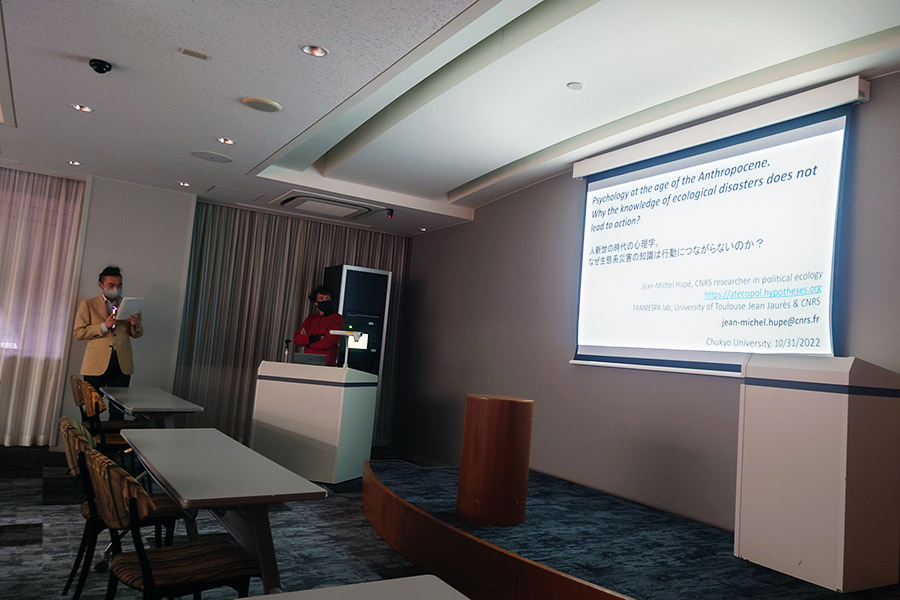
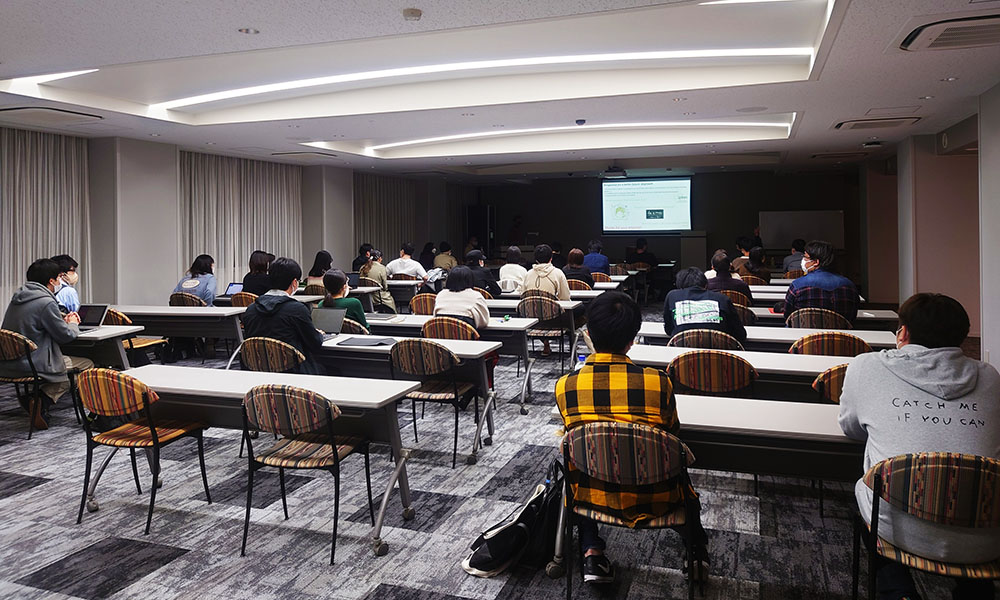
Lecures in July 2022
Speaker: Dr. Hiroki Terashima (NTT Communication Science Laboratories)
Title: Understanding Sustained Attention of Audition in Comparison with Vision
***
Speaker: Dr. Hao Tam Ho (École normale supérieure and Chukyo Universtiy)
Title: Decision Bias and Alpha Oscillation
Photos
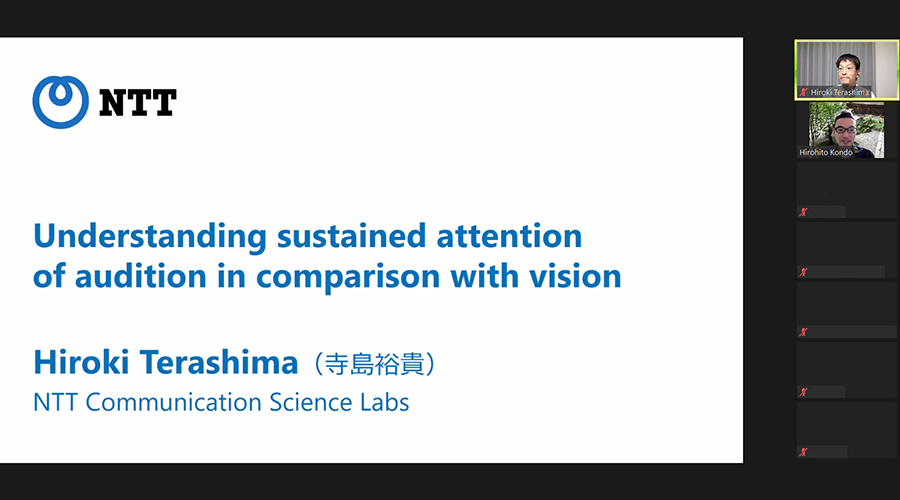
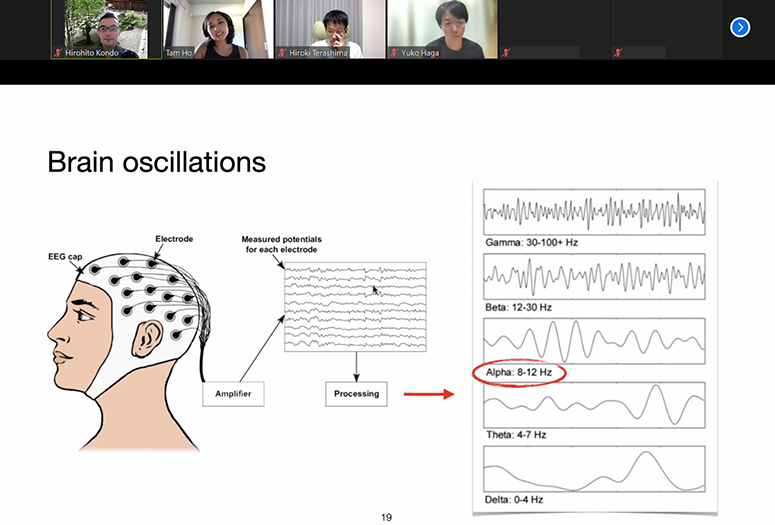
Collection: Time Perception
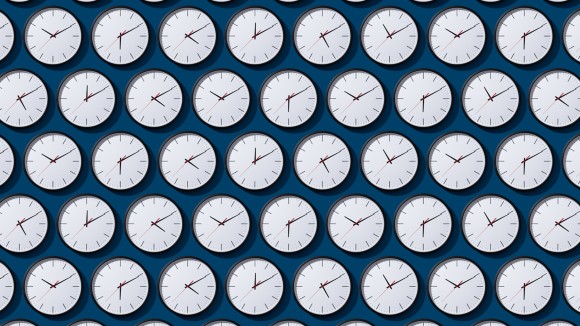
This Collection of Scientific Reports focuses on the malleability and fluidity of human time perception. Specifically, why the perceived temporal order of events, as well as their duration, can be easily affected and distorted by various factors, including emotional states, feelings of control, or perceived causality. This Collection welcomes research providing insight into this malleability, as well as that which explores individual differences in time perception, in both the neurotypical population, as well as individuals with psychiatric disorders, in which imprecise or atypical patterns of temporal processing might be a feature of the disorder or an underlying reason for other symptoms. Guest Editors are Elena Gheorghiu, Hirohito Kondo, and Ana Pinheiro.
Submission Deadline: 31 December 2022 (Closed)
Lecture in May 2021
Speaker: Dr. Ken Kihara (National Institute of Advanced Industrial Science and Technology)
Title: Psychology and Autonomous Driving

Lecture in Oct 2020
Speaker: Prof. Hideyuki Ando (Osaka University of Arts and Osaka University)
Title: Media Art and Psychology
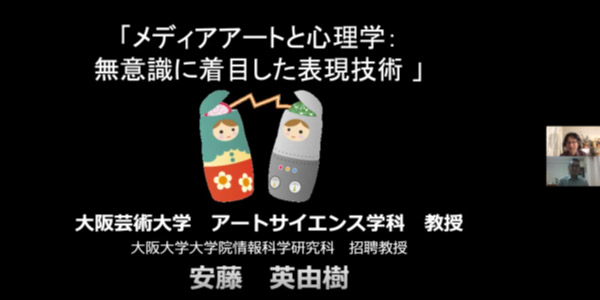
TV Appearance in Sep 2020
Lab members, Hirohito Kondo, Kanae Tada, and Ryuju Hasegawa, were interviewed for the BS Fuji TV program "GALILEO X".
The title of the program is "What is Sound to Us ?"
We demonstrated the preliminary results of our study on autonomous sensory meridian response (ASMR) and misophonia.
Dr. Manabu Honda and
Dr. Masahiro Kumeta
also appeared. The trailer is below.
Behind the Scene
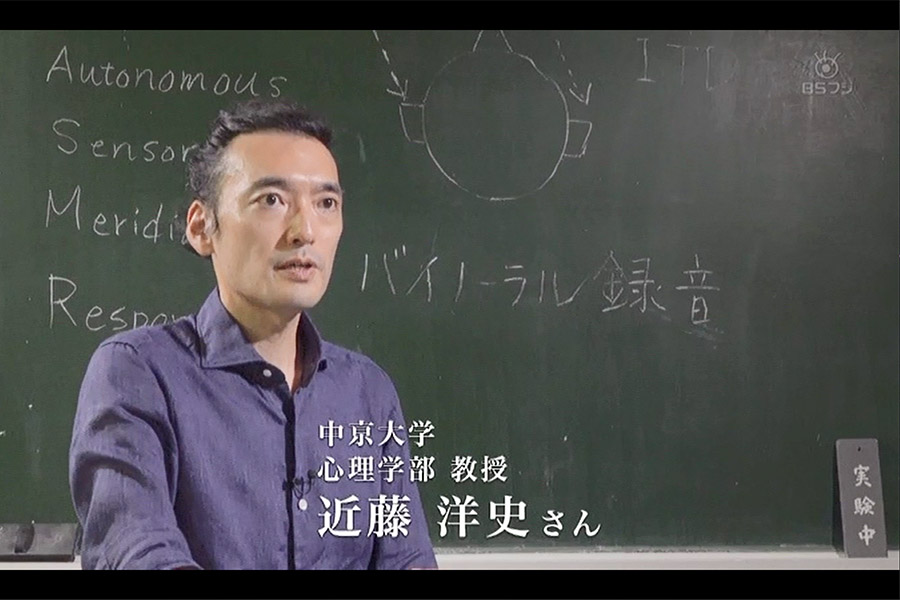
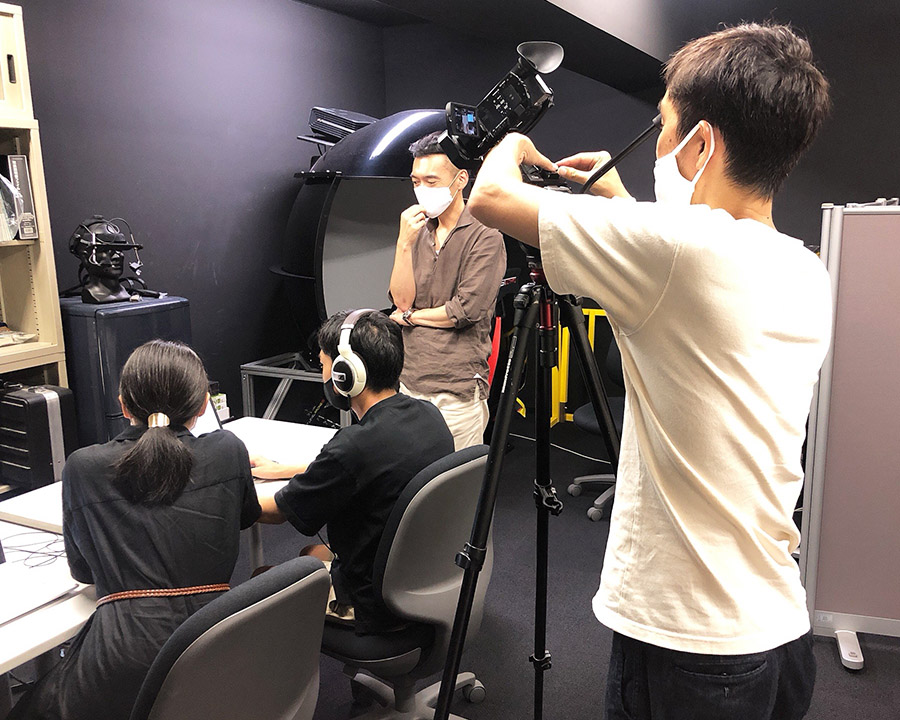
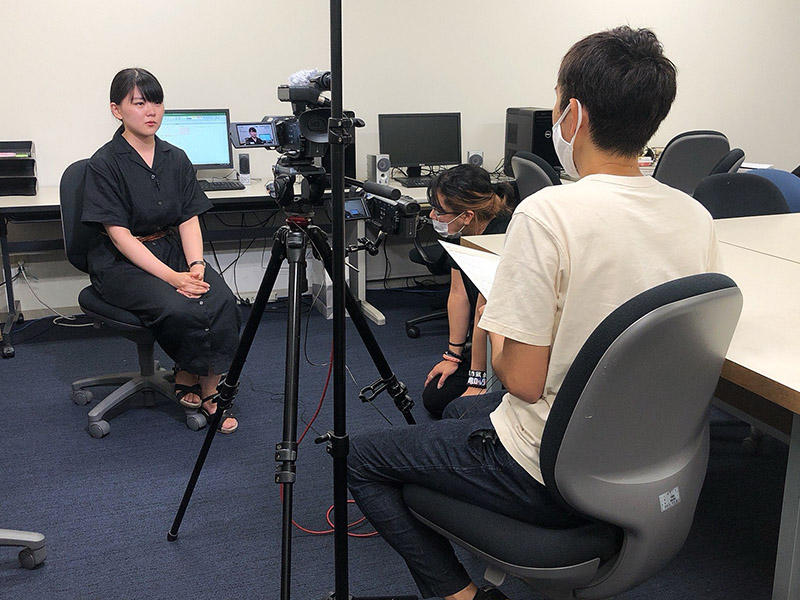
Lectures in Dec 2019 and Jan 2020
Speaker: Dr. I-Fan Lin (Taipei Medical Universtiy and Shuang Ho Hospital)
Title: Psychological Research on People with Autism
***
Speaker: Dr. Takahiro Ezaki (JST and The Universtiy of Tokyo)
Title: Energy Landscape Analysis of Neuroimaging Data
Photos
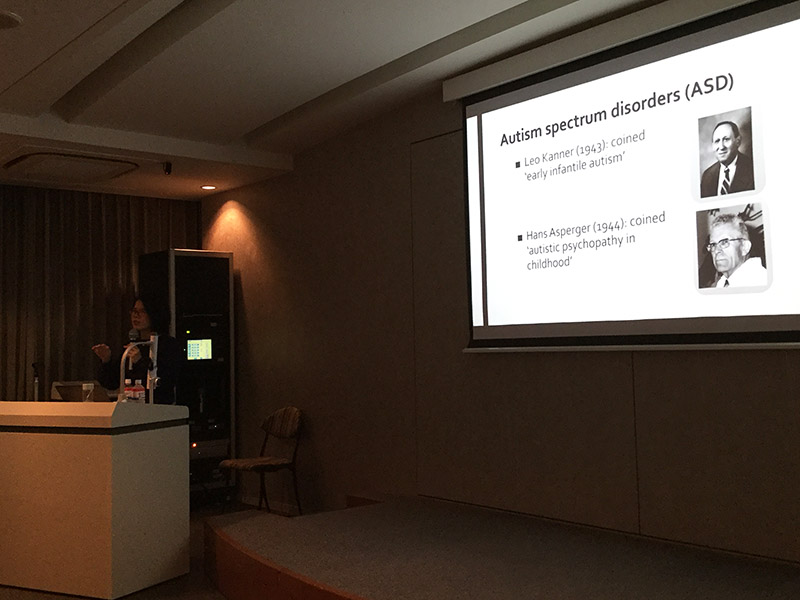
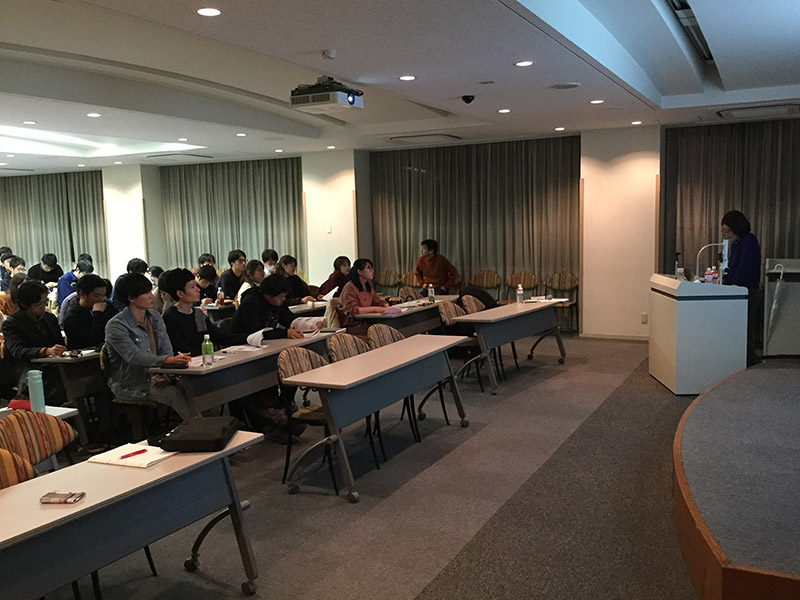
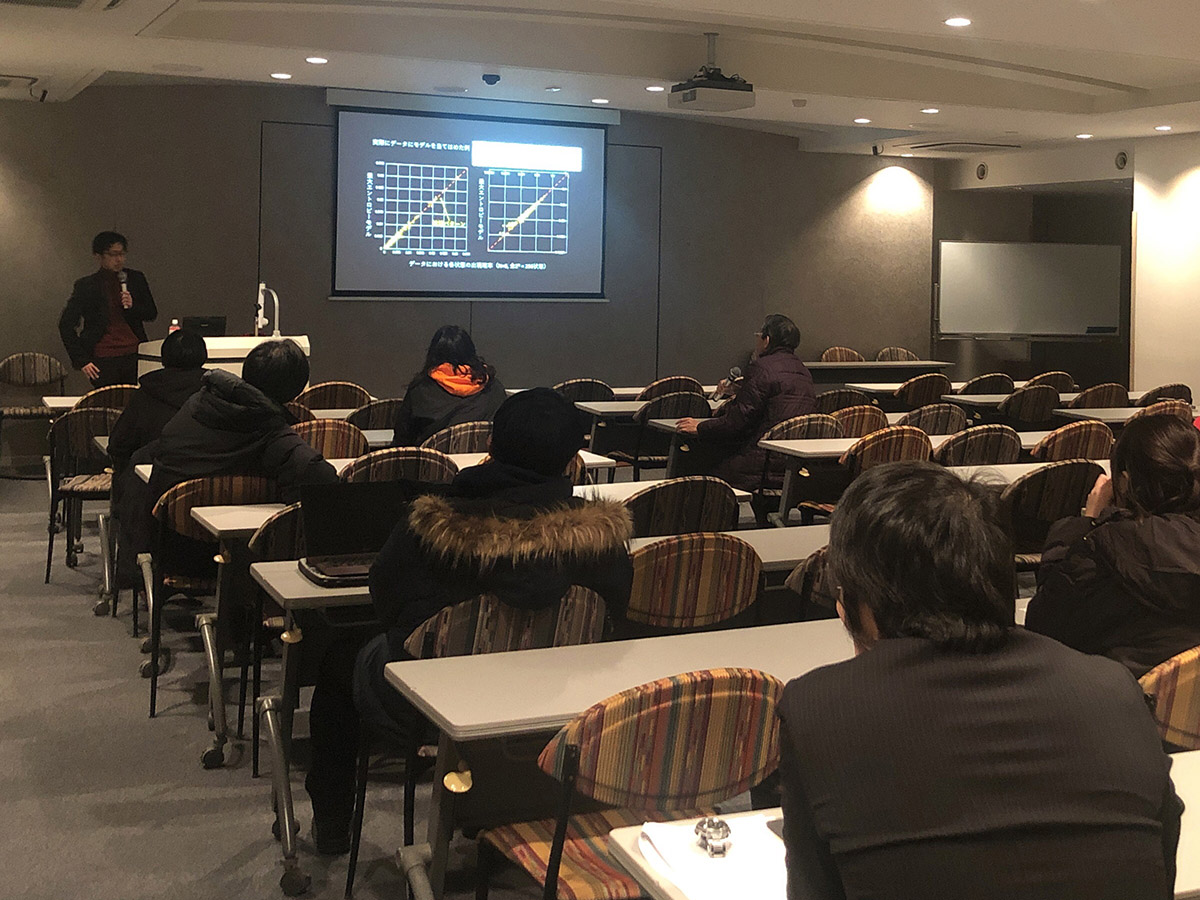
Special Issue: Auditory and Visual Scene Analysis
The Special Issue of
Philosophical Transactions of the Royal Socciety B
covers advances on scene-analysis research with a combination of psychophysics, neuroimaging,
neurophysiology, and computational modeling and presents new directions in empirical and theoretical approaches.
For an integrative understanding of scene analysis beyond sensory modalities, we have collected contributing articles
from 20 Principal Investigators (research topics).
The collection of articles compares recent findings in auditory and visual scene analysis.
The issue was edited by Hirohito Kondo,
Jun Kawahara,
Anouk van Loon, and
Brian Moore and
published in February 2017.
| Discipline | Auditory Science | Visual Science |
|---|---|---|
| Behavior |
|
|
| Neuroimaging |
|
|
| Neuroscience |
|
|
| Neurophysiology |
|
|
| Clinical |
|
|
| Modeling |
|
|
Scene Analysis of Ryoan-ji Temple in Kyoto


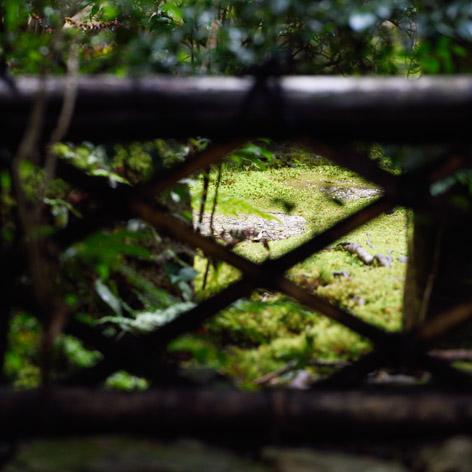
Joint Seminar 2016
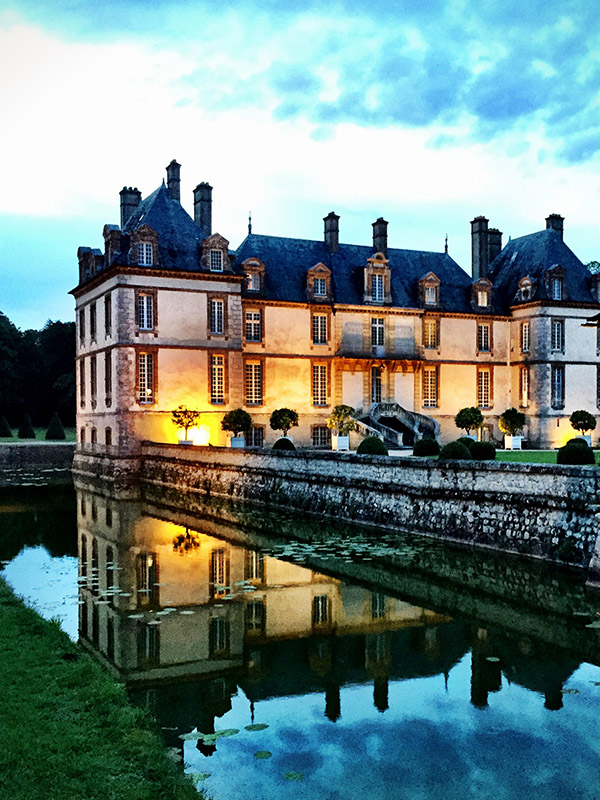
The seminar, entitled "Theoretical and Experimental Approaches Towards Auditory Scene Analysis", was held at the Château de Bourron-Marlotte Fontainebleau in France. The closed meeting was organized by Daniel Pressniter (CNRS) and Hirohito Kondo (NTT) in June 2016 and supported by JSPS Bilateral Programs. More than twenty researchers, including postdocs and PhD students, participated in this seminar to build an integrated theory of auditory scene analysis from findings of different disciplines. Each participant gave a 30-min presentation on his/her research theme. The presentations covered a wide range of topics including psychophysical, neuroimaging, neurophysiological, and mathematical modeling studies. The lectures contained unpublished data, which led to a lively question and answer session. The participants spent all three days in a suburban facility outside the bustle of Paris, which fostered in-depth discussion outside of the scheduled program. We will continue to actively support young researchers and promote information exchange for collaborative research.
Photos
